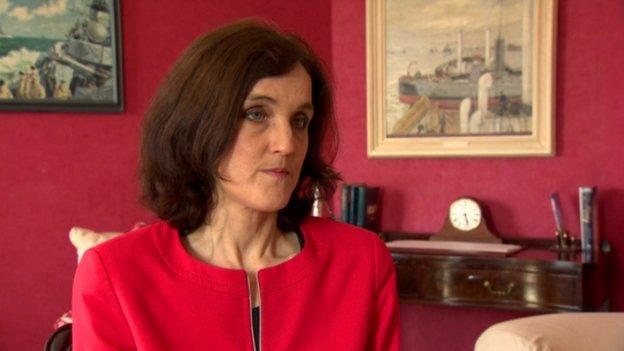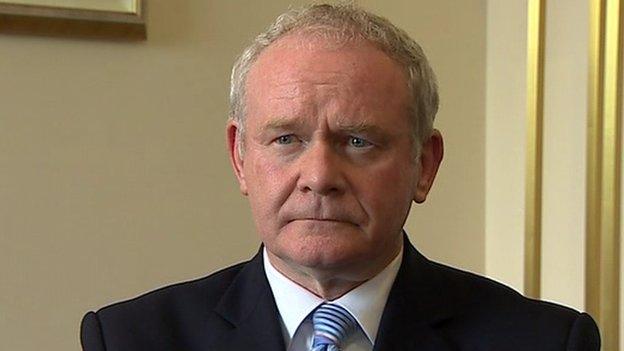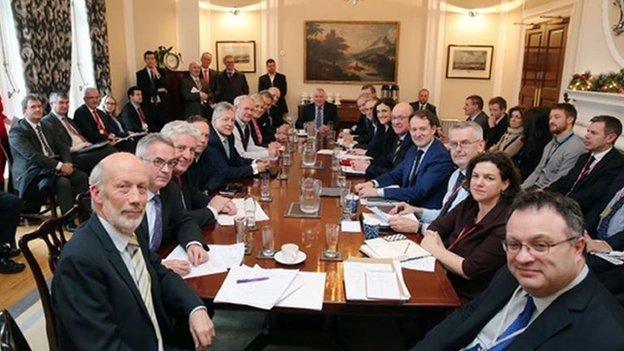Welfare and election 2015: Crossing swords over welfare reform?
- Published
- comments

Sinn Féin withdrew their support for a deal on welfare reform in March
Last week, the DUP and Sinn Féin crossed swords over the wisdom of delaying finding a solution to Stormont's welfare reform difficulties until after next month's Westminster election.
The DUP leader Peter Robinson said that "by refusing to settle this matter until after the election, Sinn Féin will cause further cuts to public services. No doubt when services are cut Sinn Féin will, without embarrassment, blame everyone else".
Sinn Féin's negotiator Conor Murphy denied his party was to blame over the delay in resolving the welfare stand-off.
He insisted Sinn Féin's full negotiating team had been ready to discuss any proposals and told BBC's Inside Politics programme about his frustration at waiting for documents from the DUP-led Department for Social Development (DSD).
'Cruel'
If the Stormont welfare negotiations are going nowhere this side of the election, then the logical reason would be that the parties want to see the colour of any future UK government's money.
It is fair to assume that a Conservative-led government would deliver more of the same, with George Osborne already on record predicting a further £12bn of welfare savings.
A Labour-led government is a different prospect. Martin McGuinness says he thinks Labour "gets" the welfare issue, but what does their manifesto have to say on the topic?
As expected, Labour reiterated that it intends to abolish the so-called "bedroom tax" or spare room subsidy, which it describes as cruel. According to Peter Robinson in a recent Inside Politics interview, that could save Stormont around £20m per year in mitigation costs.
Opening offer
However, the Labour manifesto also says that if the party forms the next government it "will cap structural social security expenditure in each spending review so that it is properly controlled" and pledges to "keep the household benefit cap and ask the Social Security Advisory Committee to examine if it should be lower in some areas".
That might put the dampeners on Martin McGuinness's hopes of getting a much better deal from Mr Miliband than the one on offer from Mr Cameron.
In these days of a likely hung parliament, every party's manifesto is less a promissory note and more an opening offer.
That will apply not just to any London-based discussions on forming a UK government, but also to any future talks aimed at resurrecting something from the ruins of the Stormont House Agreement.
- Published10 March 2015

- Published9 March 2015

- Published9 March 2015
